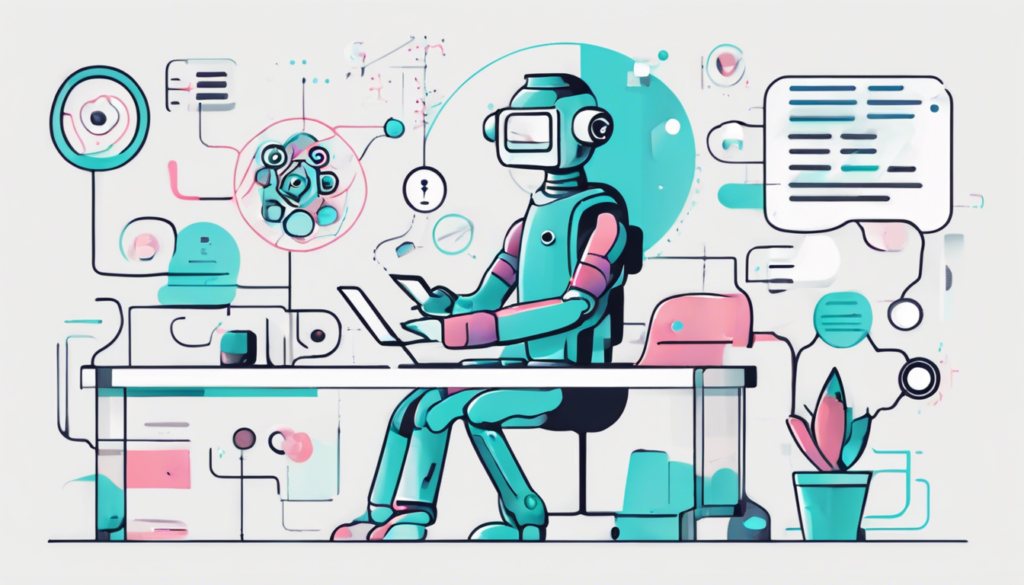In today’s fast-paced business landscape, the phrase ‘digital transformation with AI’ is not just a trending topic; it is a necessity for survival and growth.
As organizations strive to stay competitive, they are realizing the potential of artificial intelligence (AI) to drive meaningful changes in their operations, customer interactions, and overall strategies.
This article delves into the significance of digital transformation, explores how AI is at the forefront of this evolution, and discusses successful implementations as well as challenges businesses face.
Moreover, it provides insights into future trends and actionable strategies for professionals keen on navigating this transformative journey.
Challenges Businesses Face in Implementing AI
As organizations embark on their journey of digital transformation with AI, they often encounter several challenges that can impede their progress.
One significant hurdle is the integration of AI technologies with existing systems; many legacy systems are not equipped to support the complex data operations that AI requires.
Additionally, a skill gap within teams can pose a serious limitation, as employees may lack the technical expertise needed to effectively leverage AI tools and processes.
Furthermore, businesses must navigate the ethical implications of AI, including data privacy concerns and potential biases in AI algorithms.
Finally, the financial aspect cannot be overlooked, as significant investment is often needed for infrastructure upgrades and ongoing training.
Addressing these challenges is crucial for any organization looking to successfully implement digital transformation with AI and realize its full potential.
Future Trends: The Next Phase of Digital Transformation
As we look ahead, the landscape of digital transformation with AI is poised for significant evolution.
Organizations are increasingly harnessing the power of artificial intelligence to streamline operations, enhance customer experiences, and drive innovation.
This trend is not just about adopting new technologies; it’s about redefining how businesses operate in an increasingly competitive market.
Advanced AI algorithms are enabling firms to analyze vast datasets, predict consumer behavior, and automate routine processes, thus freeing up valuable resources for strategic initiatives.
Companies that are proactive in integrating AI into their existing digital transformation strategies will likely gain a competitive edge, allowing them to respond quickly to market changes and consumer demands.
Moreover, as AI tools become more accessible, even smaller enterprises can leverage this technology to enhance their operational efficiency and customer engagement.
In this new phase of digital transformation, the synergy between human intelligence and artificial intelligence will become a critical determinant of success.
Frequently Asked Questions
What is digital transformation with AI?
Digital transformation with AI refers to the integration of artificial intelligence technologies within business processes to enhance productivity, improve customer experiences, and drive innovation.
It involves leveraging AI tools and data analytics to streamline operations and make informed decisions.
Why is digital transformation important for businesses today?
Digital transformation is crucial for businesses to stay competitive in a rapidly evolving marketplace.
It helps organizations adapt to changing consumer demands, optimize operational efficiency, and unlock new revenue streams through innovative products and services.
What are some successful examples of businesses that have undergone digital transformation with AI?
There are many case studies of businesses experiencing successful digital transformations using AI.
Companies like Amazon and Netflix utilize AI for personalized customer recommendations, while manufacturing firms adopt AI-driven automation for improved production efficiency.
What challenges do businesses face when implementing AI for digital transformation?
Common challenges include a lack of skilled personnel, data privacy concerns, resistance to change among employees, integration issues with existing systems, and the need for substantial investment in technology and training.
What future trends should businesses expect in digital transformation with AI?
Future trends include increased adoption of AI-driven automation, expanded use of machine learning and predictive analytics, greater emphasis on data privacy and security, and the rise of advanced collaborative tools that enhance remote work capabilities.






